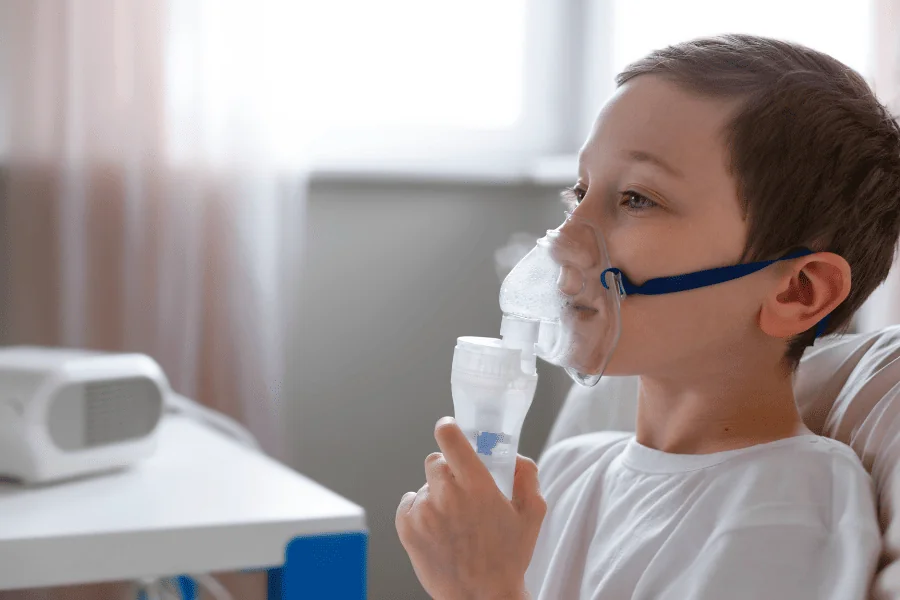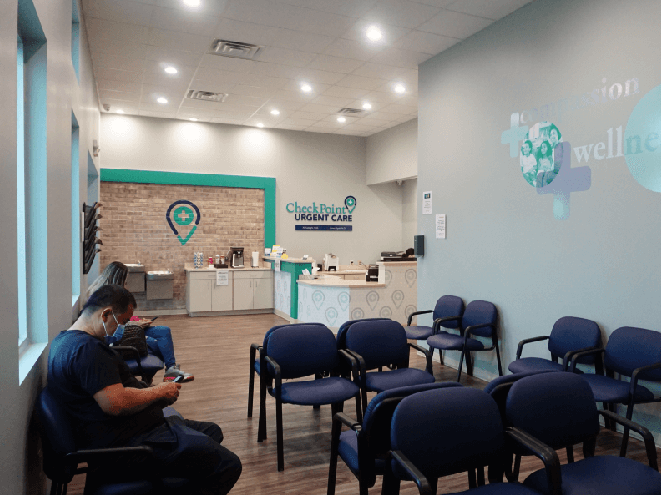Welcome to CheckPoint Urgent Care, where we aim to provide you with health insights to keep you and your loved ones healthy. Today, we’re focusing on a common health concern that affects millions each year: upper respiratory infections (URIs).
Upper Respiratory Infections
Upper respiratory infections (URIs) are common illnesses that affect the breathing system above the chest, including the nose, throat, and airways. Their symptoms can range from mild to severe, making it essential to understand the type of infection to determine the best treatment and when to seek medical help.
What Are Upper Respiratory Infections?
URIs encompass various conditions that impact the upper respiratory system. While most are caused by viruses, some infections can be bacterial. Common URIs include the common cold, bronchitis, the flu, pharyngitis, laryngitis, sinusitis, and ear infections.
Types of Upper Respiratory Infections
The Common Cold (Rhinitis)
The common cold is the most widespread URI, causing symptoms like a runny nose, sneezing, and congestion. Although there’s no cure, colds usually clear up on their own within a week or two. Treatment focuses on managing symptoms through rest, hydration, and over-the-counter medications.
Acute Bronchitis
Acute bronchitis occurs when the bronchial tubes become inflamed, leading to coughing, wheezing, and breathing difficulties. It often develops after a cold or another URI. While symptoms typically improve within a few days, the cough may linger for weeks.
Influenza (Flu)
The flu is a more severe respiratory illness caused by influenza viruses. Symptoms include fever, chills, body aches, and fatigue. Annual flu vaccinations are the best defense, and antiviral medications can help reduce the severity and duration of the illness.
Pharyngitis (Sore Throat)
Pharyngitis is an inflammation of the pharynx, causing a sore throat, pain when swallowing, and sometimes fever. While most cases are viral, bacterial infections like strep throat require antibiotics.
Laryngitis
Laryngitis occurs when the larynx (voice box) becomes inflamed, often due to overuse or infection. Symptoms include hoarseness or voice loss. Resting your voice and avoiding irritants like smoke can help speed up recovery.
Sinusitis
Sinusitis happens when the sinuses become inflamed, leading to a stuffy nose, facial pain, and pressure. Chronic sinusitis may require treatment with nasal corticosteroids or, in some cases, surgery to improve sinus drainage.
Otitis Media (Ear Infection)
Common in children, otitis media is an infection of the middle ear that causes ear pain, fever, and difficulty hearing. If caused by bacteria, antibiotics may be prescribed to treat the infection.
How Are URIs Spread?
URIs are highly contagious and spread through airborne droplets when an infected person coughs or sneezes. You can also contract a URI by touching contaminated surfaces and then touching your face. Good hygiene practices, such as regular handwashing and avoiding close contact with sick individuals, can help prevent the spread.
Treating and Preventing Upper Respiratory Infections
Treatment
Since antibiotics only work on bacterial infections, most viral URIs will resolve on their own. However, you can manage symptoms with the following methods:
- Rest: Allow your body to conserve energy to fight off the infection.
- Hydration: Drink plenty of fluids to keep mucous membranes moist and prevent dehydration.
- Humidity: Use a humidifier to add moisture to the air and ease congestion.
- Over-the-Counter Medications: Decongestants, antihistamines, and pain relievers can help alleviate symptoms.
Prevention
- Wash your hands frequently with soap and water.
- Avoid touching your face, especially your nose, mouth, and eyes.
- Stay away from people who are sick.
- Disinfect frequently touched surfaces regularly.
- Keep up to date with vaccinations, including the annual flu shot.
Understanding the different types of URIs and their symptoms can help you manage these infections effectively. If symptoms worsen or persist, consult a healthcare professional for proper diagnosis and treatment.
When to Visit CheckPoint Urgent Care
If you or a family member is experiencing symptoms of a URI, especially if they are severe or not improving, it’s important to seek medical attention. At CheckPoint Urgent Care, we can help diagnose the type of URI, recommend appropriate treatment, and provide guidance on how to manage symptoms and prevent future infections.
Remember, while URIs are common, you don’t have to navigate them alone. Our team is here to support you every step of the way, ensuring you recover quickly and maintain your health in the long term.
For more information or to schedule an appointment, contact CheckPoint Urgent Care today. Stay healthy and breathe easy!








